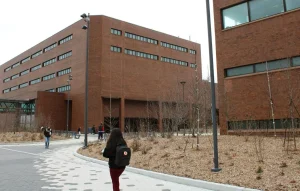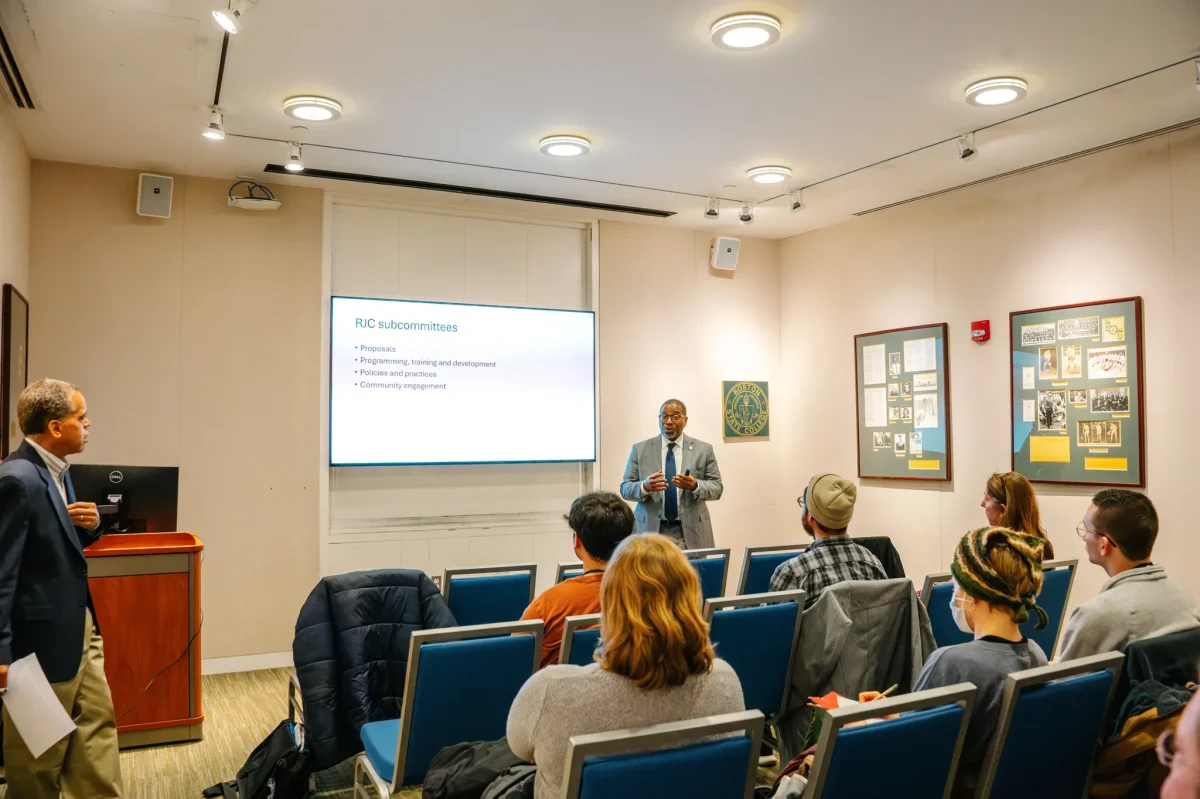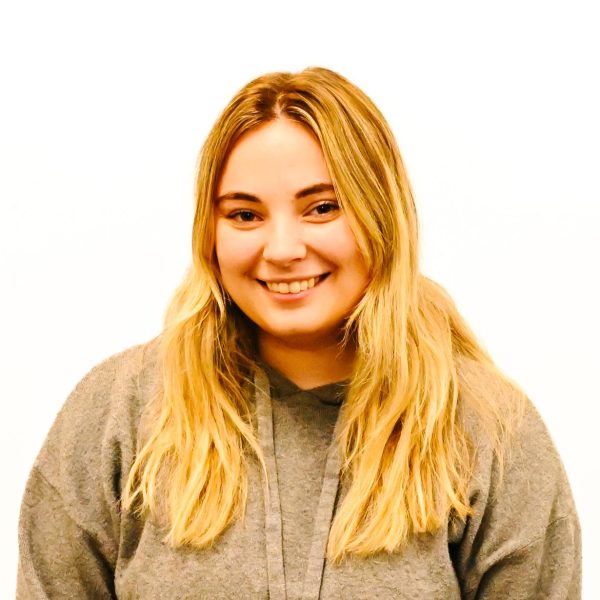UMass Boston’s Restorative Justice Commission held two conferences on Feb. 4 and Feb. 7 to discuss the commission’s upcoming plans for this semester and beyond.
The conference was led by Vice Chancellor for Inclusive Excellence Calvin Hill and Special Assistant to the Chancellor Michael Johnson, the co-chairs of the commission.
The commission’s missions include assessing the campus’s climate, developing a strategic plan around inclusive excellence, recommending strategies to Chancellor Marcelo Suárez-Orozco that can make the campus community better through the lens of racial justice, equity and inclusion, and providing a space for all involved with UMass Boston to discuss and act upon issues.
Johnson and Hill discussed a new process to allow community members to ask the committee for funding, endorsements, resolutions and initiatives for restorative justice efforts on campus, including research projects, community engagement initiatives, training workshops and pilot programs based around systemic change. Approximately $100,000 will be given out every semester, with award grants ranging from $5,000 to $25,000.
All proposals must include a description of the project, a list of collaborators, a budget justification, a proposed timeline and a clear explanation of your request from the RJC. The proposal process opened Feb. 10, and all proposals are due March 1. Proposal applicants will be notified of the RJC’s decisions by March 31, with the accepted projects being implemented between April and June. The next round of proposals will start in September.
The RJC is also looking for new members and affiliates for those who cannot commit fully. The commission comprises up to 20 members, including students, staff and faculty, who serve two-year terms. Those members work in subcommittees: one focused on the proposals, one on policy and procedures, one on training and development, and one on community engagement.
“This is a working body. They’re going to have to review proposals. They’re going to have to initiate training and development. They’re going to review policies and procedures across campus, and let us know as a body what we need to be thinking about. And we’re sharing that with other ministries on campus. Again, that notion of community engagement. You engage and have conversations so that we can make sure that we are both listening as well as understanding this,” Johnson said regarding the subcommittees’ collaboration and roles in the RJC.
Those who are interested in working with the RJC should email Hill or Johnson, they said.
Jemadari Kamara, a professor in the African Studies department, voiced his frustration with the university’s approach to restorative justice, referring to the lack of care and attention that the Africana Studies department has received from the chancellor. He said the commission was presented “as if it were some initiative of this chancellor, who, over the last several years, has refused to meet, even with the advisory commission of the Africana Studies Department.”
Kamara said administration has ignored pleas and walked back restorative justice promises they’ve made, referencing a George Floyd Scholarship fund and a proposed series of undoing racism trainings that never fully came to fruition. For the Africana Studies program’s 50th anniversary, their budget request to the university only resulted in $1,650 provided by Johnson and Hill, and the event was not publicly acknowledged by the university.
Said Kamara, “That is, in part, why we’ve had the kind of response by faculty in the College of Liberal Arts, and now in the College of Sciences. We just heard yesterday at the faculty council that they do not believe that this administration believes in nor acts — we talked about action and looking at action steps — … in the principle of shared governance in this institution.”






